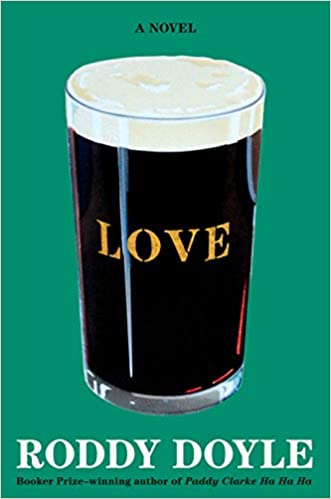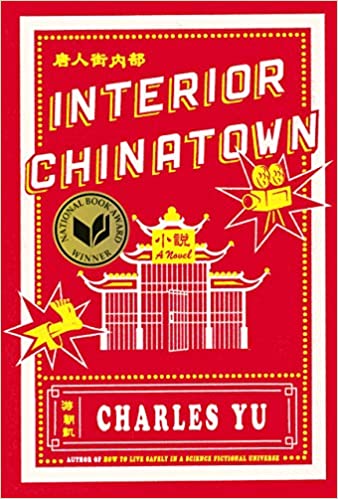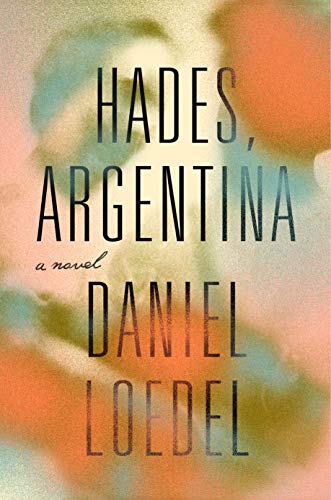-
Beach Reading
-
-
![Michael Rosen]()
-
CIO Insights are written by Angeles' CIO Michael Rosen
Michael has more than 35 years experience as an institutional portfolio manager, investment strategist, trader and academic.
RSS: CIO Blog | All Media
Beach Reading
Published: 04-29-2021
Beach weather is upon us in Southern California, so here are some book suggestions from my last few months of reading.

Love, by Roddy Doyle
Two old friends, Joe and Davy, reunite after many years apart. Pub-crawling through Dublin, they catch-up on their lives since they were in school together. There is no plot, just dialogue between two people. But truly exceptional dialogue from a master writer. The two men struggle to find the right words, but even when they do, words can have more than one meaning or the wrong meaning. Doyle is brilliant in crafting dialogue, at examining the meaning of words, and it seems that two friends getting drunk together is merely the pretext for a display of his linguistic talents. That would be sufficient to recommend this book. But it takes a sudden turn at the end, when they leave the last pub, to attend to what brought Davy back to Dublin after all these years away. In a few final pages, Doyle reveals the love underlying the entire story. Doyle’s masterly language and powerful message left me in awe and in tears.

Interior Chinatown, by Charles Yu
Funny, poignant, brilliantly constructed: there’s a reason Interior Chinatown won the National Book Award. The book describes a TV crime show shot in Chinatown where the characters play out their roles as dictated by the script, but also act out their own, real lives. The dialogue jumps frenetically between what is a TV script and real life, and that, perhaps is his point. We all, on some level, are playing our roles that have been written for us, but in the end, this doesn’t bring us happiness. Better to write our own scripts. “Interior” in the title refers to the physical location of the action, but also to the inner fears and hopes that we each have. The reference applies equally to communities as to individuals, as the collective works to fit in with the broader national group. The fictional TV series is called Black and White, and much of the action describes how the Chinese characters in this show (and in real life) are categorized (neither black nor white, neither fully accepted nor wholly rejected). Charles Yu is a very gifted writer, and Interior Chinatown is a masterpiece.

The Return, by Hisham Matar
Jaballa Matar was a senior military officer in Libya, stationed in London in 1969 when a captain named Muammar Qaddafi overthrew the corrupt monarchy that ran the country. He returned to Libya supportive of the coup and was subsequently named a diplomat in the United Nations delegation. Jaballa soon broke with the regime, becoming its most prominent opponent. He fled to Cairo, where he was abducted and sent to prison in Libya. The Return is his son’s account of his 20-year search for what happened to his father, whether he was alive or was killed, and if so, when and under what circumstances. Interspersed throughout are stories of his childhood in Libya, and those of his many relatives. Hisham Matar paints the Libyan landscape with his poetry and illustrates the many small gestures of his relatives that give us an understanding of their lives. But this book also plots his relentless search for the truth about his father. An extraordinary book.

Hades, Argentina by Daniel Loedel
The bleak history of Argentina of the 1970s and 1980s as seen through the eyes and reminiscences of one of its victims/perpetrators. This is a novel, but the descriptions of terror and places of terror are real. Tomás, living in New York, returns to Buenos Aires and encounters the ghost of girlfriend, killed by the junta. She had asked him to be embedded in a notorious torture cell as the medical doctor to feed her information about the dictatorship. He did, but of course worked closely with the torturers as well. Thus was Tomás both victim and abettor of the dictatorship. The prose is sparse, fitting for the descriptions of terror, and Tomás’ unreconcilable position as a first-hand observer of torture and an informant to the revolutionaries haunts both him and the reader.

The Last Kings of Shanghai, by Jonathan Kaufman
The history of China cannot be told without its businessmen, and Jonathan Kaufman, a Pulitzer-Prize winning journalist, illustrates the century or so of two dominant families in Shanghai. The Sassoons came first, in the mid-19th century, fleeing Baghdad for Mumbai, where the opium trade with China helped them establish another fortune, before moving the family to Shanghai permanently. They brought other Baghdadi Jews into their business, including the Kadoories, who became their biggest rivals. Kaufman portrays all the color of pre-Communist Shanghai and the important roles these two families in making Shanghai one of the great cities of the world. While mostly bitter rivals, the families worked together to fund the resettlement of 18,000 refugees from the Nazis. All their property and businesses were confiscated with the Communist takeover in 1949. The Sassoons departed China for good, but the Kadoories moved to Hong Kong to begin again, rebuilding their business empire while cultivating political ties to the mainland Communist Party. An entertaining and informative perspective of China’s development through two remarkable families.

The Secret Life of Groceries, by Benjamin Lorr
You may not think much about how food arrives at our grocery stores, but it is one of the world’s logistical marvels. Lorr highlights many of the aspects of this global supply chain through the stories of a handful of people. All are small cogs in this enormous canvas, although one is well-known: Joe Coulombe, founder of Trader Joe’s, who comes across as a hero (I had the great pleasure to know Joe and his remarkable wife, Alice, and can attest to their wit and intelligence). Lorr shows how Trader Joe’s success was as the anti-grocery store. There are wonderful portraits too of a woman who is long-distance trucker, an entrepreneur trying to launch a new product (Slawsa: cole slaw and salsa mix), and a Thai fisherman held in effective slavery. All along this enormous food chain are ethical dilemmas and odds stacked high against the average worker. The book is highly entertaining, enlightening without being preachy, and conveys the deep appreciation we should have for the countless people who toil to bring us our food.
Print this ArticleRelated Articles
-
![Panic!]() 15 Oct, 2014
15 Oct, 2014Panic!
Like Scary Nights at Universal Studios (where my daughter went this weekend), it really is scary out there. I Walked ...
-
![Only the Lonely]() 4 Feb, 2019
4 Feb, 2019Only the Lonely
My first impression when flying into Mexico City a few weeks ago was its vastness. From the air, the city seems to ...
-
![Old Age]() 16 Oct, 2014
16 Oct, 2014Old Age
Its been 3 years since US equities have corrected more than 10%. But theres no law about how long rallies can last ...
-




